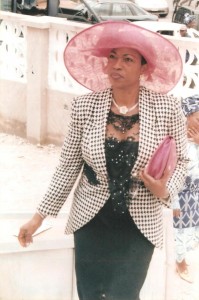Celebrating Audre Lorde with Jamaican Feminists: Activism, Self Care, and Virtual Sisterhood
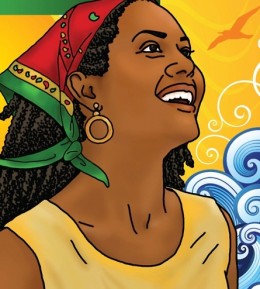 “What specific things do you do for self-care? What does your routine look like?”
“What specific things do you do for self-care? What does your routine look like?”
I was asked this question today while participating as a virtual guest at an Audre Lorde appreciation event just outside of Kingston, Jamaica. The event was hosted by SO(UL) HQ, a collective which creates alternative community spaces for discussion and exploration of the arts, culture, spirituality, and social justice.
Each month, SO(UL) HQ invites community members to an informal social activity in physical and/or virtual spaces called HQs–e.g. for film viewings, discussions, creative workshops, etc–then the organizers facilitate a cross-movement conversation with contributions from international guests, who can participate virtually via Skype.
In celebration of Audre Lorde, black lesbian activist, writer, poet and historical icon, who wrote about writing and self-care (including one of my favorite poems, “A Litany for Survival”), I’d been invited–along with Kim Katrin Crosby (activist and co-founder of the People Project)–to speak about my work as a writer and media activist, as well as elaborate on my ideas about using Love and Afrofeminism as a framework for social justice.
From Attempted Suicide Survivor to Media Activist
For my opening remarks, I shared the story about my struggle to come to terms with my sexuality as a Nigerian woman on a very white, American campus. I spoke of the severe depression I experienced as I continually failed at locating any support systems, individuals or information to accept my wholly, as an African women who loved other women. I spoke of the hopelessness I felt when I couldn’t find a single book, or movie, with queer characters or stories that could convince me (and my family) that I wasn’t the “abomination” all the Nigerian/African online forums made me out to be. I spoke of the simple, yet deeply-rooted desire to see myself reflected as a part of society–to feel that I was, in fact, normal, and how that seeming impossibility prompted me to attempt to take my own life, for relief.Â
Despite the pain of having to recount that memory often, I celebrate my survival and bold critique of the systems that still put the lives of young queer African girls in jeopardy. My attempted suicide may have been the event that sparked my journey towards becoming a media activist, but it’s done so much more; it’s the reason why mental health and self-care are prominent themes in my work, and my writing, and the reason I choose Love (for self, for others, for community) as my framework for social justice.Â
Sustainable Activism: Self Care and Virtual Sisterhood
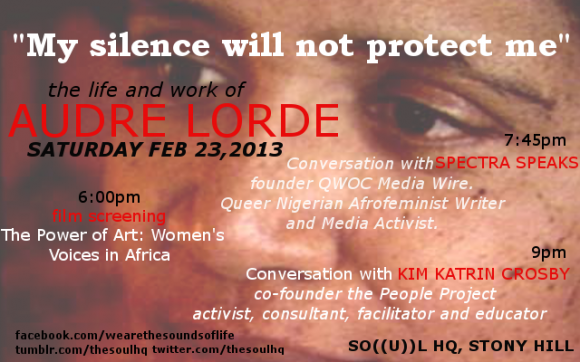 During the event, this disclosure prompted more questions (and conversation) about what it means to build sustainable movements. After all, so many of us have  been spurred to action by painful and, at times, traumatic experiences: how do we continue to drawn from such turbulent beginnings without letting them weigh us down emotionally?
During the event, this disclosure prompted more questions (and conversation) about what it means to build sustainable movements. After all, so many of us have  been spurred to action by painful and, at times, traumatic experiences: how do we continue to drawn from such turbulent beginnings without letting them weigh us down emotionally?
How do we find spaces to affirm that kind of pain–and its overcoming–as victory? How do we hold in our hearts, the stories of others, some similar, some way worse, and maintain principled temperance in our advocacy? And, since the work of an activist is social (especially for the many of us who work outside formal structures, and thus, don’t get to ‘shut down’ at the end of the day), how do we create a support network for ourselves, and for each other that we can access when we need to?Â
After participating at SO(UL) HQ’s event today, I’m inspired to create more virtual social spaces for sharing and healing, for myself. I’d been fighting a winter slump for weeks–low energy, writers block, feeling moody and isolated from seasonal depression–thus I hadn’t expected that the experience of participating in a virtual event would end up feeling as rejuventing, as uplifting, and as warm as it did. But it did, and I’m much better for it.
The setup was simple enough: the event took place at a casual community space, where the group watched a short documentary about Audre Lorde, before Skype-ing in the guests. The room radiated the kind of intimacy associated with a sleepover, not a formal event; a few women sat cross-legged on the floor, while others sat in chairs (one with a really cute baby).Â
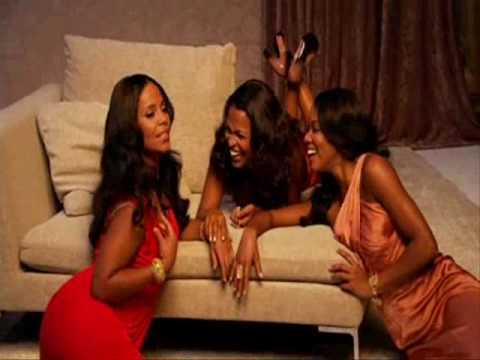
It’s no wonder I felt completely at ease chatting about my life and work; I could have been right there with my Caribbean sisters, sitting cross-legged on the floor, or lying stomach-down, propped up by my elbows. Thirty minutes later, I ended my session with the women at SO(UL) HQ feeling so nourished, so joyful, and so inspired that I’ve since been reflecting on the plethora of ways activists can use video conferencing and other tools to more intentionally create on-going support networks for themselves.
As a media activist, I often write about how social media can be used to amplify the voices of marginalized people, combat lack of diversity in media, and offer a means through which people with shared experiences and values can connect. For sure, regularly connecting with others with who we share affinity and can lean on for support (as part of our self-care practice) is included in this, but chances are that if even I–Ms. Self Care Evangelist–forgot, perhaps we all need more regular reminders.
Sharing is Caring: Nurturing Intentional Community–Online or Offline–is Self CareÂ
I’m grateful for having such a positive experience connecting virtually with Caribbean feminists today–so grateful that I’m newly inspired to rehash my goals for facilitating regular discussions about self-care in my online spaces. I don’t have all the answers, not by a stretch. Still, after today, I’m relishing the comfort of knowing that I’m connected to a number of inspiring activists–online and offline–who are just as committed to practicing self care and sustainable activism as I am.Â
This blog, my Facebook Page, and Twitter @spectraspeaks, are part of my virtual self-care support network. A place where I do feel relatively safe sharing my story, my struggle, and my successes. Your readership is a part of that, so thank you for continually encouraging my efforts to foster more dialogue around mental health in our communities.Â
Stay tuned for my next post, “7 Everyday Self-Care Principles All Activists Should Follow”, in which I’ll be sharing lessons I’ve learned from my own personal journey. We may not all be in physical space together, but–as my Jamaican feminist sisters at SO(UL) HQ reminded me today–we don’t need to be in order to reach out and support each other.
Do you have a strong support network? Is it offline, virtual, or both? What tips would you give others seeking supportive community online? Have you experienced virtual sisterhood? In what ways does it compare to sister-friend circles offline?Â
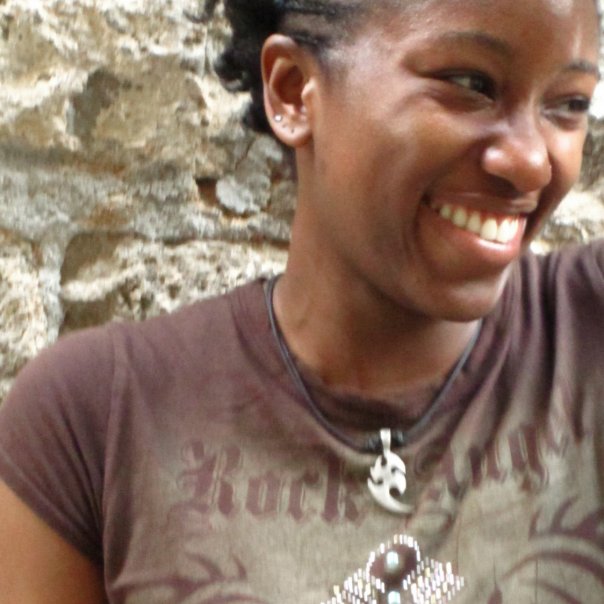
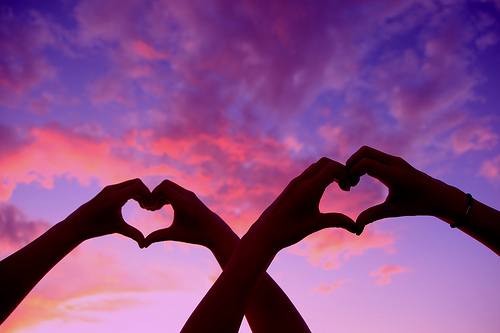
 For the past ten years, my work has focused on using media to facilitate conversations around important feminist issues: gender, sexism, racism, media, etc. So when the editors at Bitch invited me to guest blog this summer, I surprised even myself when I told them I wasn’t interested in writing about any of those things; instead, I wanted to write about Love.
For the past ten years, my work has focused on using media to facilitate conversations around important feminist issues: gender, sexism, racism, media, etc. So when the editors at Bitch invited me to guest blog this summer, I surprised even myself when I told them I wasn’t interested in writing about any of those things; instead, I wanted to write about Love.

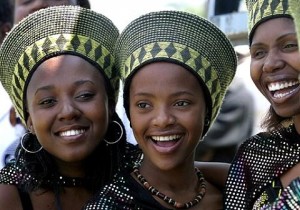 Yesterday, countries around the world celebratedÂ
Yesterday, countries around the world celebrated  As a child of the
As a child of the 